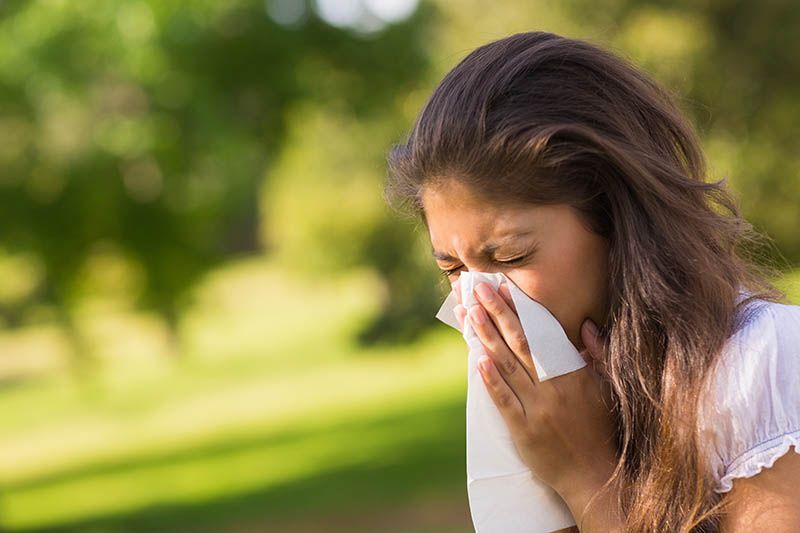Allergy
An allergy is an unusual hypersensitivity of body tissue to certain substances.
The substances that trigger an allergy are called allergens. They may be certain foods, drugs, cosmetics, dust, pollen grains or perfumes.

An allergic reaction can occur when allergens are inhaled or taken into the body through mouth or direct skin contact.

The reactions can range from mild to severe. In a mild reaction there can be slight itching, redness or swelling of the skin.
Diarrhoea can also be triggered as an allergic reaction. In severe allergic reactions, collapsing of the circulatory system, heart failure and even death can occur
Asthma
Asthma is a common respiratory disease attributed to allergy. In this condition people have hypersensitive airways that get swollen and constricted leading to breathing difficulties and wheezing.

The bouts or attacks of asthma occur following inhalation of such as pollen grains, dust, animal fur, moulds and hair sprays.
The allergens arc specific to patients such that trigger for one may not induce the same reaction in another.
Eczema

Eczema is a strong allergic reaction of the skin.
Hives

Hives are an allergic reaction marked by red, raised areas on the skin.


